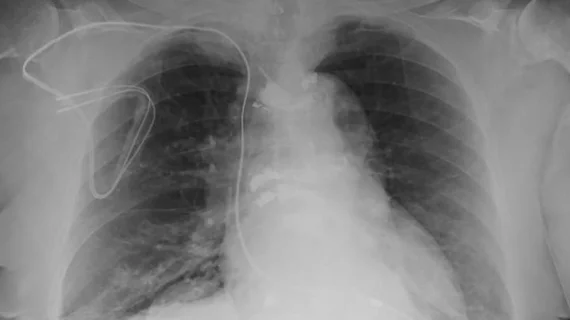Patients with non-MR compatible cardiac devices, including pacemakers and ICDs, can safely undergo MRI exams
MRI exams are safe for patients with non-MR compatible cardiac devices, according to new findings published in Radiology: Cardiothoracic Imaging.
Such imaging exams has previously been viewed as a risk for patients with certain cardiac devices, including some pacemakers and implantable cardioverter defibrillators (ICDs). The FDA categorized such devices as being non-MR compatible.
Researchers have been exploring the validity of these fears for some time, but the safety of such exams was still uncertain. The team behind this latest study hoped to address the shortcomings of those prior studies and improve the industry’s understanding of what is, and isn’t, safe for patients.
“While all devices implanted in patients today are MRI compatible, millions of people worldwide, including many young people, have older devices considered not compatible,” lead author Sanjaya K. Gupta, MD, of Saint Luke’s Mid America Heart Institute in Kansas City, Missouri, said in a prepared statement. “It’s unfair to tell these people that they can’t get an MRI for the rest of their lives.”
Gupta et al. explored data from more than 500 patients with cardiac devices who underwent MRI scans from September 2015 to June 2019. The mean patient age was 69 years old, and each patient underwent thorough device examinations before and after each MRI. While pacemaker-dependent patients received asynchronous pacing, patients with an ICD had tachycardia therapies disabled during the exam.
While 46% of the patients included in the research had a pacemaker, another 30% had an ICD. In addition, 17% of patients had CRT defibrillators (17%) and 4% had cardiac resynchronization therapy pacemakers (4%). In addition, 27% of patients were pacemaker dependent.
Overall, the exams were found to be safe and effective.
“There were no adverse events,” Gupta said. “The protocol worked amazingly well. We had no issues with any of the patients and no harm to the devices.”
Also, referring physicians reported that the MRI changed the suspected diagnosis for 25% of patients and changed the suspected prognosis in 26% of patients.
“This experience not only adds to the growing body of evidence that MRI examinations can be performed safely in patients with nonapproved cardiac devices under careful protocols, but extends this to include patients with ICDs who are pacemaker dependent, those with abandoned leads, and those undergoing thoracic MRI examinations,” the authors concluded. “This study also offers support for the extensive nonphysician resources necessary to perform these MRI examinations safely by identifying a substantial impact on clinical care in a large proportion of surveyed cases.”
The full analysis from Radiology: Cardiothoracic Imaging is available here.

